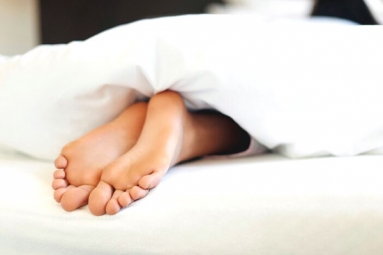
(Image source from: Canva.com)
The increase in sleep problems among young people in India is quickly turning into a serious public health issue. If we do not take action, it could heavily strain India's healthcare and economy in the future, especially as we celebrate International Youth Day. Over the past ten years, I have witnessed a hidden epidemic growing in places like clinics, hostel rooms, study areas, and workspaces: sleep issues among young individuals. Sleep is not merely "rest"; it's a crucial brain function, just as important as breathing. However, many young people are giving it up in pursuit of being more productive, for fun, or just to keep pace with their peers. Sleep problems have evolved from being a small inconvenience to a significant public health risk. Recent research indicates that about one in three young Indians experiences some form of sleep issue. When compared to 15 years ago, cases of insomnia, delayed sleep phase disorder, and non-refreshing sleep have doubled. A 2022 report from AIIMS found that roughly 52% of surveyed students reported not sleeping well.
Young people between the ages of 16 and 24 are especially at risk for sleep disorders in India. These years often involve academic stress, emotional struggles, and too much time on screens. Factors like hormonal changes, the influence of social media, and staying up late make this age group particularly susceptible. The sleep disorders I commonly observe in today’s youth include insomnia (trouble falling asleep or staying asleep), delayed sleep phase disorder (shifting sleep patterns to late hours and waking up late), restless legs syndrome, non-restorative sleep (waking up tired even after enough sleep), and sleep apnea (which is becoming more common in young people who are overweight).
Various reasons are behind the increasing sleep disorders among youth, such as exposure to blue light from devices, irregular sleeping patterns (especially since COVID), academic pressures and fears about performance, distractions before bedtime (like scrolling through social media, gaming, or binge-watching shows), and the intake of caffeine and energy drinks. The impact on the brain and cognitive functions is serious: it leads to poorer memory and ability to learn, difficulties in managing emotions resulting in mood swings, aggression, and anxiety, shorter attention spans and focus, higher chances of migraines and mental exhaustion, and even lasting changes in how the brain works if sleep deprivation goes on for years.
Often, treating sleep disorders starts with non-medical methods, like Cognitive Behavioural Therapy for Insomnia (CBT-I), adjusting circadian rhythms, using blue-light filters and setting screen time limits, and practicing relaxation techniques like deep breathing and mindfulness. Medication is only recommended when absolutely necessary and for a short time. To avoid sleep issues, there are several helpful actions: stick to a regular sleep schedule, even on weekends; avoid using screens at least an hour before going to sleep; and reduce caffeine consumption after 2 p.m. because caffeine can remain in the body for 5 to 6 hours, affecting nighttime rest. Develop a calming bedtime routine, similar to an essential meeting or deadline, and treat sleep as a priority.










